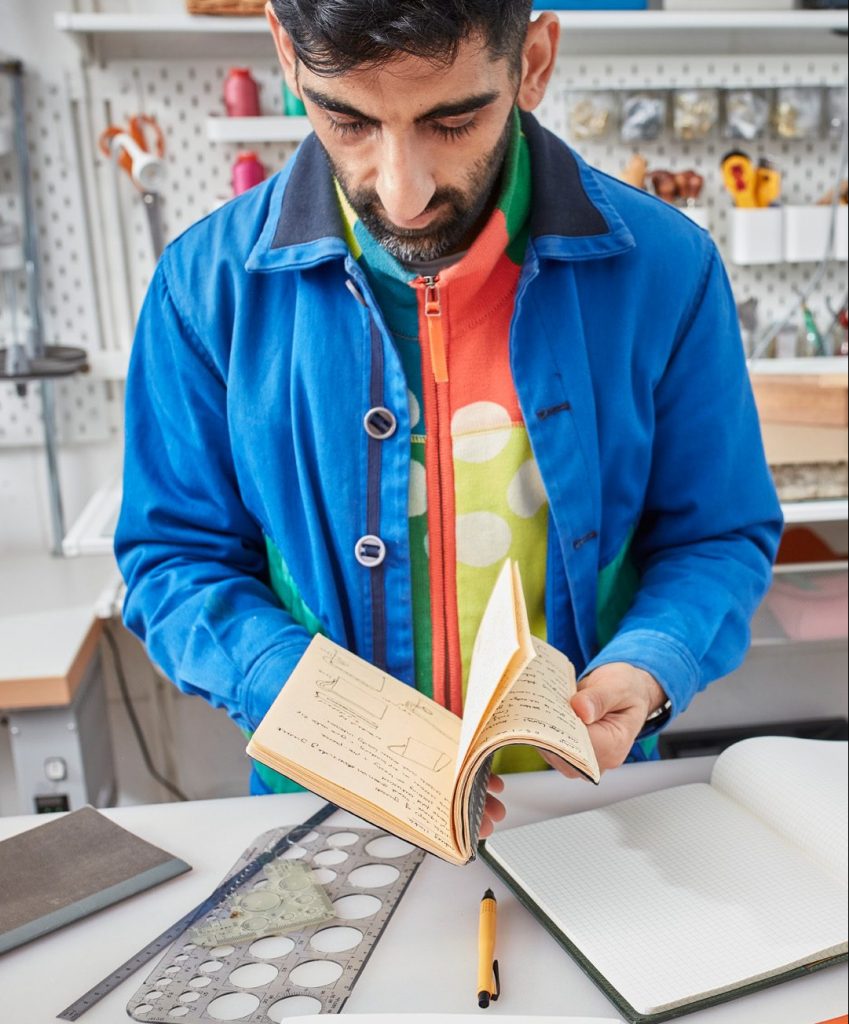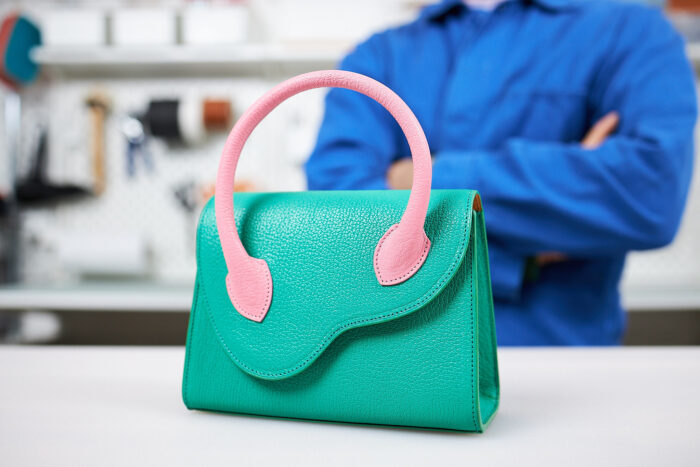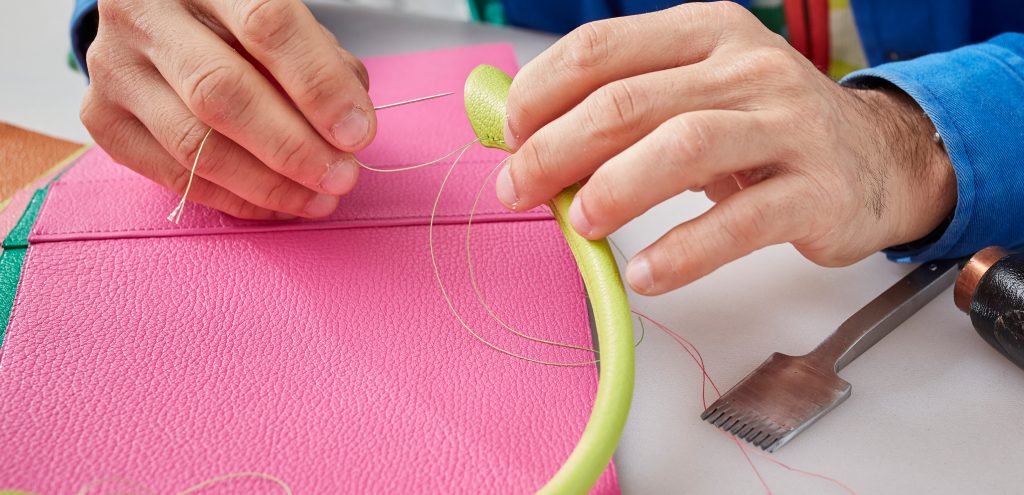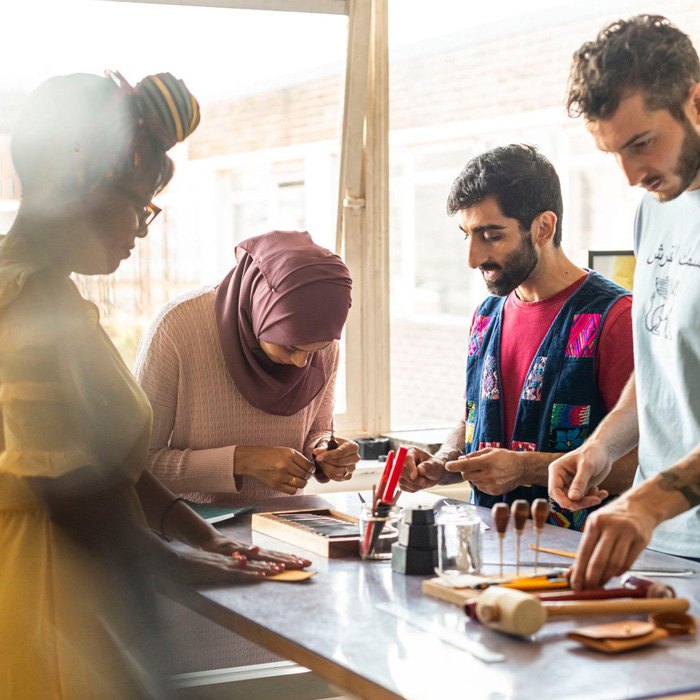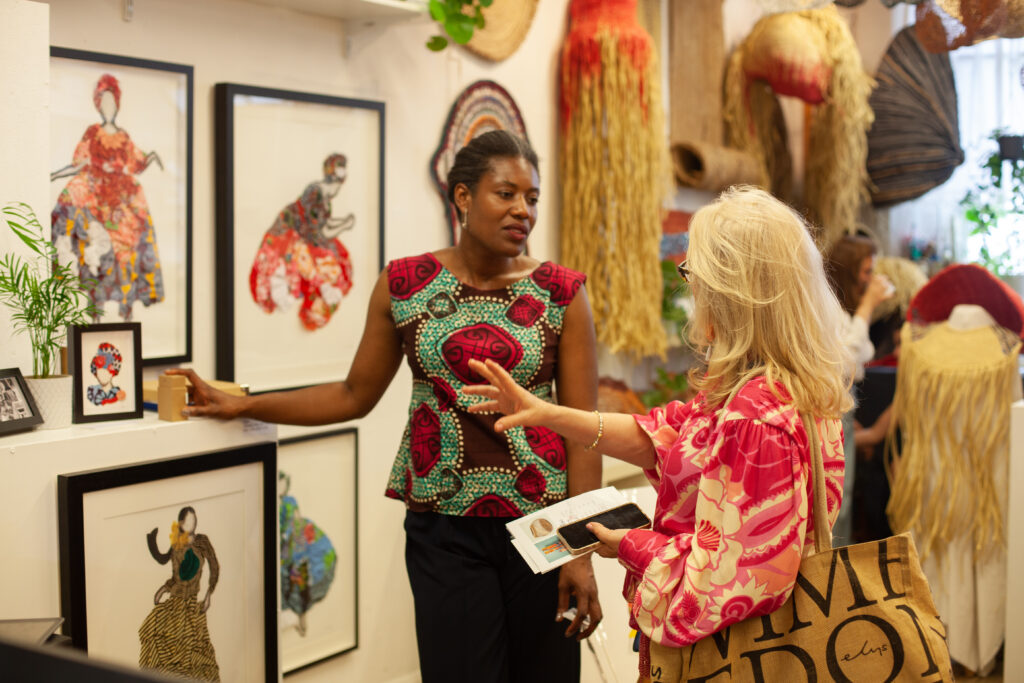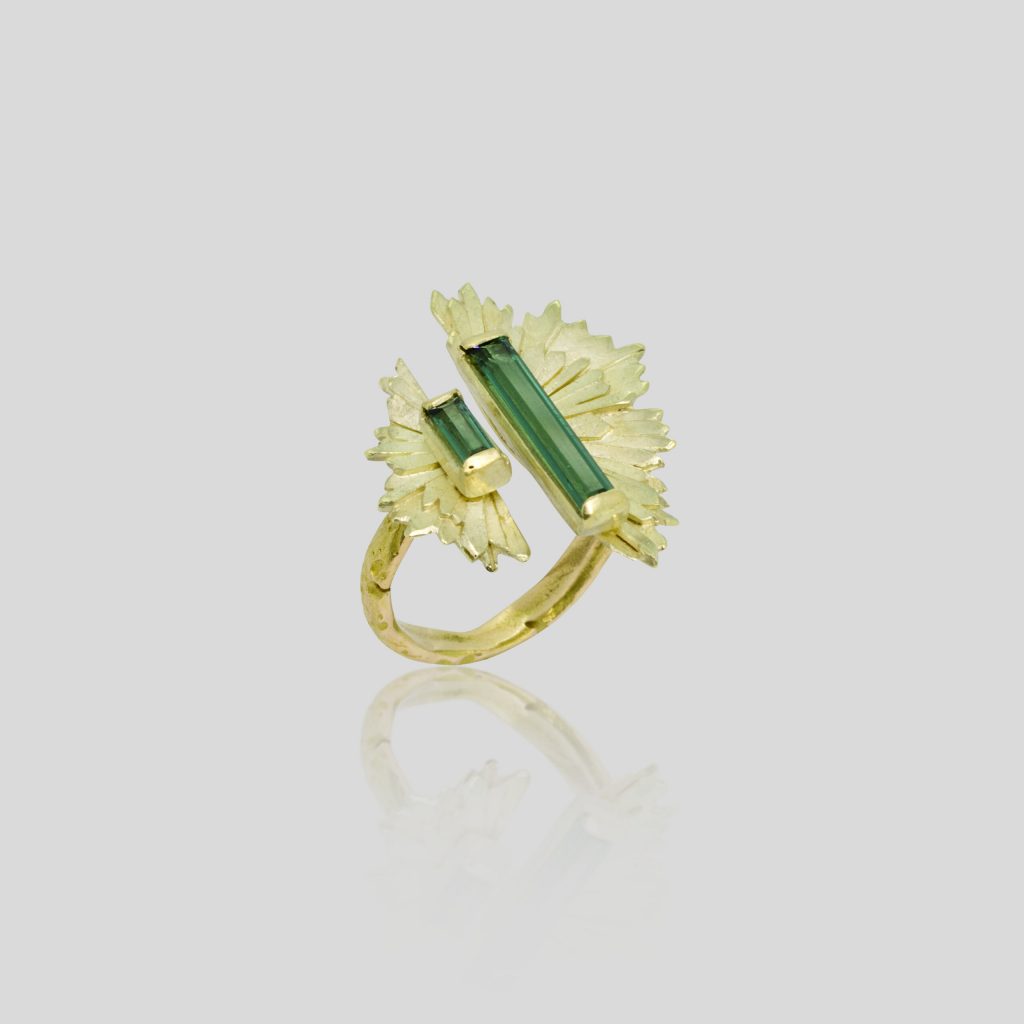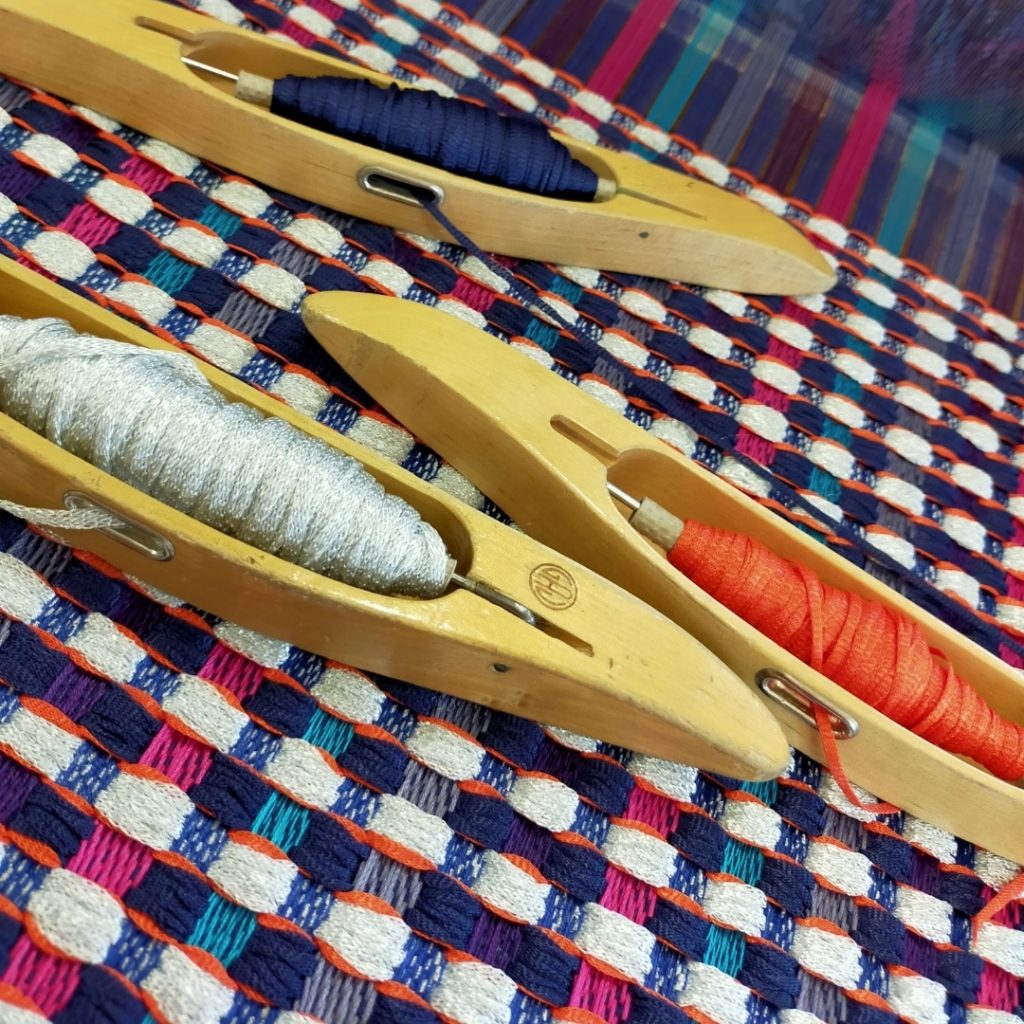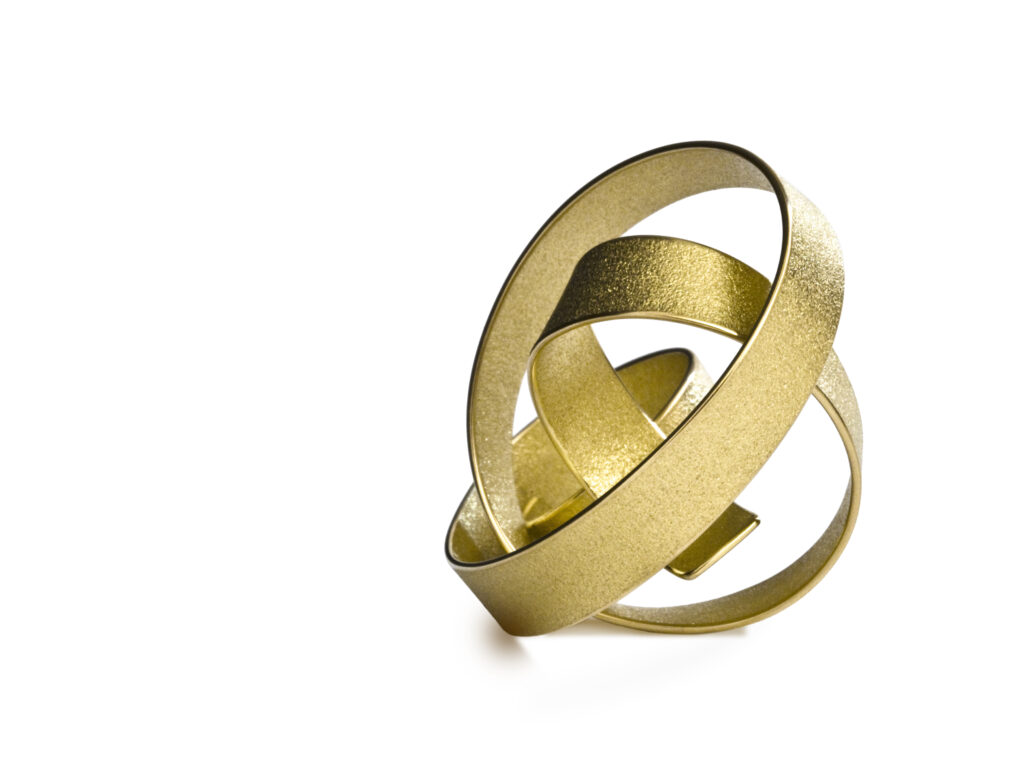Hole & Corner’s eighth, and final, makers’ residency at Little Britain is leather craftsman Yusuf Osman. Drop in to see him at the Hole&Corner Makers Residency, 45 Little Britain, Farringdon, London EC1A 7BN (open 11am and 5pm, Monday-Friday).
Yusuf Osman is a designer and leather craftsman making fine hand-stitched goods in premium natural leather. Having discovered a flair for making while studying law at the London School of Economics, Osman attended a number of workshops in various creative mediums before chancing on the world of traditional leatherworking. From here, Osman travelled to many countries around the world, honing his new-found skill with makers of the highest expertise.
On returning to England, it had become clear that Osman’s plans to pursue a career as a solicitor had dissolved and, a move to his current studio at the prestigious Cockpit Deptford hailed a new chapter in Osman’s life as a professional leather craftsman. Osman is now at the top of his field, having been exhibited in the Walsall Leather Museum, featured in the Crafts magazine, awarded The Leathersellers’ Award by The Worshipful Company of Leathersellers in 2021, and collaborated with brands such as eBay and Jo Malone.
His design label, YUSSICO, uses (mostly) vegetable-tanned leather sourced from France or Italy, for its collection of bespoke and made-to-order products. Osman also hosts workshops where he passes on his extensive knowledge of leather, from its historical trade to current views on sustainability, ethics and welfare in the industry, and teaches students contemporary and traditional leatherworking techniques.
What do you hope to get out of your makers’ residency at Little Britain?
Since starting this craft I’ve been working on my own, especially during the pandemic, and I think that’s traumatised me a little. I love what I do, so it is easy to think that when I am by myself in the studio doing what I love, it’s healthy, but actually there’s a really fine line between it being healthy and unhealthy, and I often feel I cross that line.
This will be my first time working in a space that is more open. I hope that by working in a different space I will be able to gain a new perspective on my practice and generate conversations – whether those conversations are between myself and how I work, or myself and the material, or myself and anyone that might come into the space.
What do you intend to work on during the residency?
I have some orders that need fulfilling and I’m finding them quite difficult to finish in my current studio. I spent most of the lockdown alone in that studio and I think only now I am realising the full impact of that. Spaces carry emotional baggage based on what was happening when you were in them. I’m hoping that by moving to a different space, I might be able to complete these orders.
What tools will you bring?
I’ll be bringing a selection of hand tools (my stitching clams, needles, and knives) to experiment with hand-sewing leather – a nice, meditative thing to do.
These days we think that digital nomads are the only people who can travel with their work, but that’s only because craft has become so burdened with heavy tools and studios. If we really take it back to basics, craft was just something we did with our hands, and with the tools and materials available to us; in a way, there is freedom in that.
I’ve been travelling a lot this year; I’ve been to India and Bali to look at craft there and compare it to the UK. When we start something here, we put so many obstacles in the way: ‘I must learn this’, ‘I must have the right tools’, ‘I must be in a set workspace’. Yet, when you look at places where craft is an integral part of life, there is none of that. I saw people making really intricate works that people here would have industrial machinery for, just sitting on the floor, holding a piece of wood with their foot and carving with their hands.
As a broader project, I want to explore what I can produce when I am limited to my hands, and the tools or materials that I have access to through a community. For example, I might travel somewhere and connect with someone locally that has the machines I need for my craft. This is something I’ve been thinking about in my practice because, based on what I said earlier about my studio being emotionally charged, I want to see if craft can lead to a nomadic lifestyle and what that might look like.
This residency is an interesting way of testing that out. Even though it’s in central London, I’m still not going to have any of my normal machines, I’m just going to be using what I can physically bring to the space and see what that produces. Sometimes, I think having more can be counterproductive. Moving to a place where you can’t have those things and so you have to figure out how to make a different way, can lead to something incredible.
How do you get into the creative zone / mindset?
For me, it is always on. For me, creativity is unbridled. I have more ideas than I can deal with and sometimes it’s kind of overwhelming. It’s more about what I can do to calm that mind down and connect with my hands, materials, and tools in front of me. Ideas come from having a very stimulated mind but you have to know what is inspiration and what is stimulation. Sometimes we confuse the two. When you actually take a step back to work out what your inspiration is, that’s when you produce work that is authentic, original, and speaks from the heart.
What are you looking forward to in the coming months?
I’m really looking forward to seeing how I can take this practice forward from something that has always been very closed for me. It’s always been about me having the ideas and doing the work alone, but I truly believe that craft is about communication and I am excited to make my practice more collaborative and see where that leads.
When you are making on your own, you have most of the control but, by opening up your practice, it opens up more possibilities of what can happen, and that is more powerful than what one person can generate. Coming back to that point of community, there is power in engaging with other people and letting go of that control to see what can be achieved.
In that train of thought, do you feel part of a wider craft community and, if so, why do you feel that community is important?
I definitely do and I think that it’s really important because craft has always been about community. If we think about craft in its very basic form it was something we did to to survive. Now we’ve made it into this rarefied form where we think of craft as the achievement of one person in their studio producing works that are unattainable, that will later sit in a museum, gallery, or private collection. I think it’s really important to remember that craft has always been about community, we are all connected through crafts and we can’t really do them on our own.
What sort of support do you expect or would you like to see more of, as a maker, from the craft community?
I think that craftspeople are, on the whole, looking for community but I think that the institutions and the ways that the industry is structured now often make us in competition with one another. The idea that creatives have to be competing with other creatives, that somehow there’s not enough room for all of us, and that some craft is more acceptable, worthwhile, or better than others, is the capitalisation of craft. That is the problem and not craft itself or craftspeople themselves.
Again, if you look at other countries it’s completely the opposite; craft is an everyday part of life and you’re never doing it on your own, you’re doing it with your family, you’re doing it with your community, your selling it to your community, it’s part of religious ceremonies and it’s part of food culture. I think that, in the West, crafts have become so difficult to sustain for individuals that we end up having to isolate ourselves in order to get anywhere.
But in reality, this is counterproductive. Every time I’ve ever had any kind of breakthrough in my practice, it’s always been in the presence of another creative; they don’t have to help you directly or be in the same struggle as you, it’s just this feeling of connection and knowing that you’re not alone, that creates a shift in energy. So I think there just needs to be better systems in place to help craftspeople connect and support each other.
So often craft is something done behind closed doors and in isolation, the toiled outcome of which is prized, but at what cost to the craftsperson and to society? For his residency Yusuf will be crafting in community with invited guest makers. With no brief or desired outcome, together they will explore what it means to craft, to connect and what develops naturally and organically as a result.
Visit Yusuf at the Hole&Corner Makers Residency
45 Little Britain, London EC1A 7BN
July 31 to August 4, 11am and 5pm
Visit Osman and 100 other makers at the Cockpit Deptford Open Studios on December 1-3, at the launch of the new building. Save the date!
